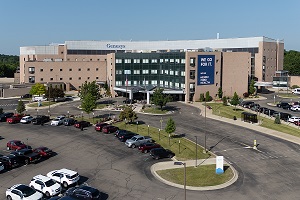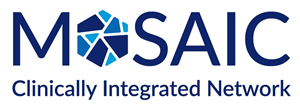Henry Ford Health System Therapeutic Choir Finds Its Voice Through COVID-19

DETROIT – Henry Ford Health System is harnessing the healing power of singing to help patients with voice disorders that result from various medical conditions such as Parkinson’s disease, stroke and vocal cord paralysis to help improve their voices.
Patients in a therapeutic choir called the Motor City Upbeats regain their vocal strength and range and breathing through a series of simple exercises and techniques taught in a welcoming, cheerful environment where just hearing the sound of your voice is music to the ears.
 “Our therapeutic focus for the choir is really about coordinating breathing and voicing, being a little louder through exercises that support the breath and voice,” said Alice Silbergleit, Ph.D., Henry Ford’s Director of Speech-Language Sciences and Disorders who developed the choir in 2019 after having recognized the lack of continued practice of voice therapy techniques once formal therapy sessions ended. “During follow up visits, I learned that patients were no longer practicing on their own or were isolated and didn’t have anyone to speak to at home,” said Dr. Silbergleit.
“Our therapeutic focus for the choir is really about coordinating breathing and voicing, being a little louder through exercises that support the breath and voice,” said Alice Silbergleit, Ph.D., Henry Ford’s Director of Speech-Language Sciences and Disorders who developed the choir in 2019 after having recognized the lack of continued practice of voice therapy techniques once formal therapy sessions ended. “During follow up visits, I learned that patients were no longer practicing on their own or were isolated and didn’t have anyone to speak to at home,” said Dr. Silbergleit.
Her goal for the choir was to supplement the traditional therapy techniques with a community-based and socially engaging way for her patients to continue practicing their voices. The choir provided the perfect setting for singing in a group where patients battling similar vocal challenges could support one another.
The Motor City Upbeats find inspiration in being “upbeat” and it forms the group’s philosophy and therapeutic approach.
“We’re focusing on what our participants can do and not on what they can’t do,” said Elizabeth Esqueda, an experienced vocal performer and voice teacher who directs the choir using healthy vocal exercises to complement the therapy experience and expand to other musical exercises that work on breathing coordination and voicing.
The choir’s exercise goals are to work on breathing, resonance and vocal muscle coordination and flexibility while having fun learning to harmonize in a group setting, regardless of singing ability. The Upbeats also uses fine and gross body movements with song such as clapping, foot tapping, finger snapping, large arm movements even while seated to promote coordination of moving and voicing.
Jerry Anderson was diagnosed with Parkinson’s in 2016. Last year, he joined the choir for virtual practices after learning about it through the Michigan Parkinson Foundation. “It’s been a very good experience. We get to sing songs and learn about music,” he said.
His wife Artemae enjoys being part of the choir as well, “We’re not musicians but we love to sing, as long as no one is listening,” she joked. She said exercising the voice muscles has been good practice for her husband’s speech and swallowing that augments his Parkinson’s voice therapy.
No prior singing experience is required to join the choir, and caregivers, friends and family are encouraged to participate in support of their loved one. Exercises are geared toward anyone who wants to improve their voice.
Virtual rehearsals during the pandemic was a challenging experience for the choir director and its members. However, they were still able to work on vocalizations, movement and breath control while singing popular songs from different genres and eras that incorporate lyrics, melodies and harmonies that provide effective vocal exercises. With the recent recommendations from the CDC for fully vaccinated people, Dr. Silbergleit has been able to resume in-person group rehearsals in a safe outdoor setting. The Upbeats are now preparing to help kick off the Michigan Parkinson Foundation’s annual outdoor walk-a-thon fundraiser on June 26 with the singing of "The Star Spangled Banner”. 
In addition to benefiting the vocal cords, singing in a choir offers participants many mental health benefits backed by research. Singing is known to release endorphins which help promote positive feelings, especially when singing with a group. Group singing also induces the production of oxytocin, a bonding hormone, which can reduce stress, anxiety and increase feelings of trust and well-being.
Therapeutic singing may benefit people with a variety of medical or neurological conditions that may impact their voice, including:
- Parkinson’s disease
- COVID-19 recovery
- COPD
- Multiple sclerosis
- Myasthenia Gravis
- Pulmonary fibrosis
- Stroke
- Vocal fold paralysis or vocal fold bowing
- Any medical or neurological conditions that cause mild shortness of breath
The choir has been popular among Henry Ford patients and is also open to anyone in the community effected by voice disorders. There is no cost to participate thanks in great part to an anonymous donation made last year that helps support the program.
“This is really an opportunity for those who have a medical condition that affects their voice or breathing to practice in a fun, relaxed, group setting and to stay motivated about keeping their voice in shape after voice therapy,” said Dr. Silbergleit. “We also have members who have joined the choir who have not gone through voice therapy."
For more information and to learn how to join the Henry Ford Motor City Upbeats therapeutic choir, visit www.henryford.com/upbeats, or contact the program by phone at (248) 661-7241 and by email at mcubspeech@hfhs.org.
###
NEWS MEDIA CONTACT: Sal Giacona/sgiacon1@hfhs.org/ 313-421-9108
.svg?iar=0&hash=F6049510E33E4E6D8196C26CCC0A64A4)

/hfh-logo-main--white.svg?iar=0&hash=ED491CBFADFB7670FAE94559C98D7798)







